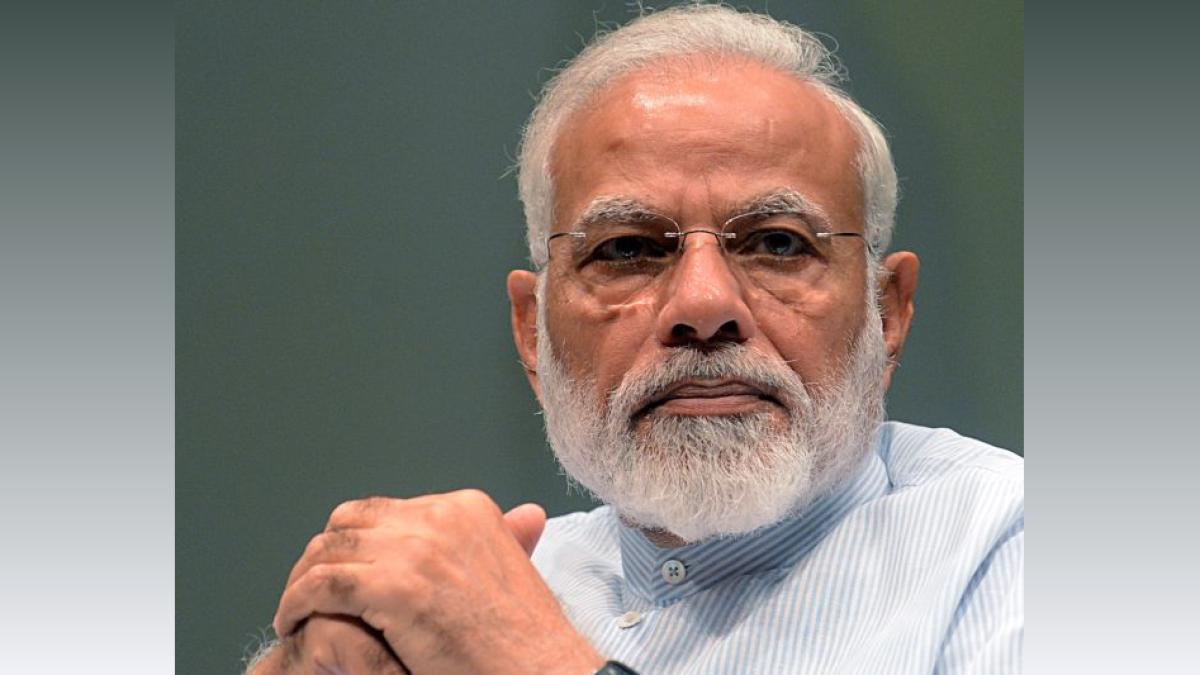Ruchir Sharma's Book: Capitalism's Ills & India's Future
Ruchir Sharma's new book analyzes the failures of capitalism and how India's government policies have hindered its economic potential. Explore his insights on India's development challenges and his proposed solutions.

Photograph: R Raveendran / ANI Photo
New Delhi, Apr 24 (PTI) Despite all of India's inherent strengths, from a strong entrepreneurial culture to world-class human capital, it will take longer to become a developed nation than it could have, argues author and investor Ruchir Sharma in his new book.
The reason, he cites, is that too often, Indian politicians sell aid to select businesses or industries as economic reform, when the measures in fact retard competition and growth.
"Pro-business is not the same as pro-capitalism, and the distinction continues to elude us," he adds.
In the book "What Went Wrong With Capitalism", published in the UK and distributed in India by Penguin, Sharma shows how completely the reflexes of government have changed, from hands off to hands on, from offering too little relief in hard times to trying to prevent anyone suffering any economic pain, ever.
He says, in particular, constant government support and intervention in financial markets have crippled the competition that would break up concentrations of personal and corporate power, were capitalism allowed to function properly.
If frustrated young generations want to correct the growing ills of capitalism, the first step is to get the diagnosis right, he suggests, adding his book reexamines the causes of those ills, and the possible way out.
Sharma says his father had followed the path of opportunity in India at the time, which steered him into the government and a naval career.
Talking about the India of the early nineties, he says the allure of socialism was fading, and pragmatic technocrats were in the ascendant.
"(Manmohan) Singh along with his Oxbridge and Ivy League team became the toast of the Davos crowd, praised for imposing budget discipline, thinning the regulatory thicket known as the 'license raj', and opening India to the world," he writes.
Comparing India and China, he says in 1990, the two had similar average incomes: since then, China's has risen fortyfold to USD 12,500, while India's rose just sevenfold to USD 2,400.
"To this day the standard Indian excuse is that the world's largest democracy can't force march development the way Communist China once did. But democracy is not the problem; many democracies have grown much richer than India. It is India's lingering attachment to a state that overpromises and under-delivers," he argues.
According to Sharma, even Congress's successors in the BJP are "steeped in the same ideals".
When Narendra Modi campaigned in 2014 promising "minimum government, maximum governance", he criticised Congress for "welfarism" and said the poor want "work not handouts", the book says.
"Then Modi took power and, rather than restrain Congress's welfare programs, he topped them, offering every Indian family a 'pucca' (concrete) home with gas and electricity," it says.
Sharma says India's critical mistakes included doing too little to expand economic freedom, and too much to build a welfare state, too soon.
"The government didn't spend more heavily than its Asian rivals, but it did spend less wisely, having introduced free social programs at a much earlier stage of development, before building the roads and schools that could generate incomes high enough to pay for those programs," he writes.
"The imperious Indian state was quick to regulate, officiate, and pick winners, overconfident that its priorities were correct. Though Modi has in recent years tried to restrain welfare overspending, the central government remains notorious for its questionable choices, leaving critical services underfunded and understaffed," he alleges.
Too often, Indian politicians sell aid to select businesses or industries as economic reform, when the measures in fact retard competition and growth, he says.
"The result: despite all of India's inherent strengths, from a strong entrepreneurial culture to world-class human capital, it will take longer to become a developed nation than it could have," Sharma writes.
"In pursuit of the unreachable socialist ideal - equality of outcomes - India long denied itself the very real promise of capitalism: equality of opportunity," he adds.
The reason, he cites, is that too often, Indian politicians sell aid to select businesses or industries as economic reform, when the measures in fact retard competition and growth.
"Pro-business is not the same as pro-capitalism, and the distinction continues to elude us," he adds.
In the book "What Went Wrong With Capitalism", published in the UK and distributed in India by Penguin, Sharma shows how completely the reflexes of government have changed, from hands off to hands on, from offering too little relief in hard times to trying to prevent anyone suffering any economic pain, ever.
He says, in particular, constant government support and intervention in financial markets have crippled the competition that would break up concentrations of personal and corporate power, were capitalism allowed to function properly.
If frustrated young generations want to correct the growing ills of capitalism, the first step is to get the diagnosis right, he suggests, adding his book reexamines the causes of those ills, and the possible way out.
Sharma says his father had followed the path of opportunity in India at the time, which steered him into the government and a naval career.
Talking about the India of the early nineties, he says the allure of socialism was fading, and pragmatic technocrats were in the ascendant.
"(Manmohan) Singh along with his Oxbridge and Ivy League team became the toast of the Davos crowd, praised for imposing budget discipline, thinning the regulatory thicket known as the 'license raj', and opening India to the world," he writes.
Comparing India and China, he says in 1990, the two had similar average incomes: since then, China's has risen fortyfold to USD 12,500, while India's rose just sevenfold to USD 2,400.
"To this day the standard Indian excuse is that the world's largest democracy can't force march development the way Communist China once did. But democracy is not the problem; many democracies have grown much richer than India. It is India's lingering attachment to a state that overpromises and under-delivers," he argues.
According to Sharma, even Congress's successors in the BJP are "steeped in the same ideals".
When Narendra Modi campaigned in 2014 promising "minimum government, maximum governance", he criticised Congress for "welfarism" and said the poor want "work not handouts", the book says.
"Then Modi took power and, rather than restrain Congress's welfare programs, he topped them, offering every Indian family a 'pucca' (concrete) home with gas and electricity," it says.
Sharma says India's critical mistakes included doing too little to expand economic freedom, and too much to build a welfare state, too soon.
"The government didn't spend more heavily than its Asian rivals, but it did spend less wisely, having introduced free social programs at a much earlier stage of development, before building the roads and schools that could generate incomes high enough to pay for those programs," he writes.
"The imperious Indian state was quick to regulate, officiate, and pick winners, overconfident that its priorities were correct. Though Modi has in recent years tried to restrain welfare overspending, the central government remains notorious for its questionable choices, leaving critical services underfunded and understaffed," he alleges.
Too often, Indian politicians sell aid to select businesses or industries as economic reform, when the measures in fact retard competition and growth, he says.
"The result: despite all of India's inherent strengths, from a strong entrepreneurial culture to world-class human capital, it will take longer to become a developed nation than it could have," Sharma writes.
"In pursuit of the unreachable socialist ideal - equality of outcomes - India long denied itself the very real promise of capitalism: equality of opportunity," he adds.
You May Like To Read
TODAY'S MOST TRADED COMPANIES
- Company Name
- Price
- Volume
- Vodafone-Idea
- 11.36 ( -2.49)
- 94664837
- AvanceTechnologies
- 1.16 (+ 4.50)
- 34522155
- Sunshine-Capital
- 0.26 ( -3.70)
- 29015901
- Alstone-Textiles
- 0.27 ( -3.57)
- 28695959
- Mehai-Technology
- 1.65 ( -4.62)
- 28262795






